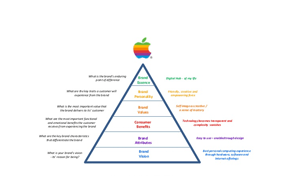What is a Brand?A brand is a name, term, product or identity that sets a company or product apart from their competition. These differentiating factors create a unified position in the market so that the brand resonates with its audience and every marketing initiative is aligned. Brands are used in business, marketing, and advertising. Name brands are sometimes distinguished from generic or store brands.
Too often, small business owners overlook developing their branding platform and bypass developing a true marketing plan and strategy. This is often because smaller companies require more lead generation to sustain in today’s market, while branding can seem like a lower priority because it takes time, consistency and investment to truly reap the benefits.
While it may be attractive to jump straight in and start doing PPC or SEO to generate leads, it may also be a huge mistake. There’s no way to truly know how to reach your goal unless you have a strategy. Otherwise, you’re just spending money, hoping for the best and taking whichever job or sale comes your way.
A well-developed brand is what takes a company to the next level. Even when bad things happen to well-known brands, in many cases, people will still use them because they know who they are.
Branding is the key to building your company’s reputation rather than your own, which ultimately enables a business owner to start duplicating himself through processes and his employees.
What Does It Take to Become a Well-Branded Company?
The first step is developing a branding platform. There are various models that people will use with their own theories behind each one; however, I generally break a brand platform down into 14 components.
Every company, including yours, needs a brand platform to establish the brand and guide all branding and marketing decisions. There are many reasons why your brand plays a role in overall company success. You may be asking, what is a brand platform? For marketers, the brand platform is the foundation for every piece of brand communications executed, thus making it a very important responsibility. Before implementing any marketing programs, marketing execs need to be completely confident in their brand platform and its elements.
Brand Objectives
Brand PlatformObjectives Explained
 Establish what you want to achieve. I like to use the SMART (specific, measureable, attainable, relevant, time-specific) model, personally.
Establish what you want to achieve. I like to use the SMART (specific, measureable, attainable, relevant, time-specific) model, personally.SWOT Analysis
Brand PlatformSWOT Analysis
 Strengths, weaknesses, opportunities, and threats. This is important to know because it impacts how your company fits in the competitive landscape.
Strengths, weaknesses, opportunities, and threats. This is important to know because it impacts how your company fits in the competitive landscape.Vision Statement
Brand PlatformVision Statement
 You have many motivators but your brand should have only one, clearly defined vision. This keeps everyone involved focused on growing the brand consistently and strategically.
You have many motivators but your brand should have only one, clearly defined vision. This keeps everyone involved focused on growing the brand consistently and strategically.Mission Statement
Brand PlatformBrand Mission
 There is a reason that you started a business and you should never lose site of that. Having a mission is what truly characterizes your brand.
There is a reason that you started a business and you should never lose site of that. Having a mission is what truly characterizes your brand.Tagline
Brand PlatformBrand Tagline
 This is something that encapsulates your entire brand in a few words. We’ve all heard taglines like Nike’s “Just Do It.” If the tagline sticks, it can carry value for a lifetime.
This is something that encapsulates your entire brand in a few words. We’ve all heard taglines like Nike’s “Just Do It.” If the tagline sticks, it can carry value for a lifetime.Brand Pyramid
Brand PlatformBrand Pyramid
 These values should resonate with the target market. This is a list and description of the beliefs and ideals that guide the behaviors of the company and its employees.
These values should resonate with the target market. This is a list and description of the beliefs and ideals that guide the behaviors of the company and its employees.Brand Messaging
Brand PlatformKey Messaging
 These are the important points that you will use to guide your marketing copy. What are you trying to communicate on each individual page? The idea should be easily received.
These are the important points that you will use to guide your marketing copy. What are you trying to communicate on each individual page? The idea should be easily received.Interview Insights
Brand PlatformShareholder Interviews
 Interviewing key stakeholders, clients or long-time employees is an essential step to building a brand platform. This helps you better understand the value proposition.
Interviewing key stakeholders, clients or long-time employees is an essential step to building a brand platform. This helps you better understand the value proposition.Target Audience
Buyer PersonasTarget Audience
 Define your target audience and understand who they are as people. People respond better to other people, which is why it is best to take a humanized approach to your brand.
Define your target audience and understand who they are as people. People respond better to other people, which is why it is best to take a humanized approach to your brand.Promise
Brand PlatformBrand Promise
 The brand promise is a one-sentence statement of the largest value proposition the brand can credibly make to its audience
The brand promise is a one-sentence statement of the largest value proposition the brand can credibly make to its audiencePositioning
Brand PlatformBrand Positioning
 This is the key component when entering a market that are heavily saturated. Developing strong positioning in a market can make a company become an industry leader.
This is the key component when entering a market that are heavily saturated. Developing strong positioning in a market can make a company become an industry leader.Brand Personality
Brand PlatformPersonality
 One paragraph statement that identifies the characteristics of your brand’s personality. This will correspond with the brand voice you choose to incorporate.
One paragraph statement that identifies the characteristics of your brand’s personality. This will correspond with the brand voice you choose to incorporate.Brand Voice
Brand PlatformBrand Voice
 The brand IS: real, approachable, friendly, fun, passionate, empathetic, understanding, genuine, authoritative, reliable, intelligent, confident, sincere etc.
The brand IS: real, approachable, friendly, fun, passionate, empathetic, understanding, genuine, authoritative, reliable, intelligent, confident, sincere etc.Value Proposition
Brand PlatformBrand Value Proposition
 This is your biggest selling point. The brand value proposition lays out what value your customers will attain from purchasing your product or service.
This is your biggest selling point. The brand value proposition lays out what value your customers will attain from purchasing your product or service.